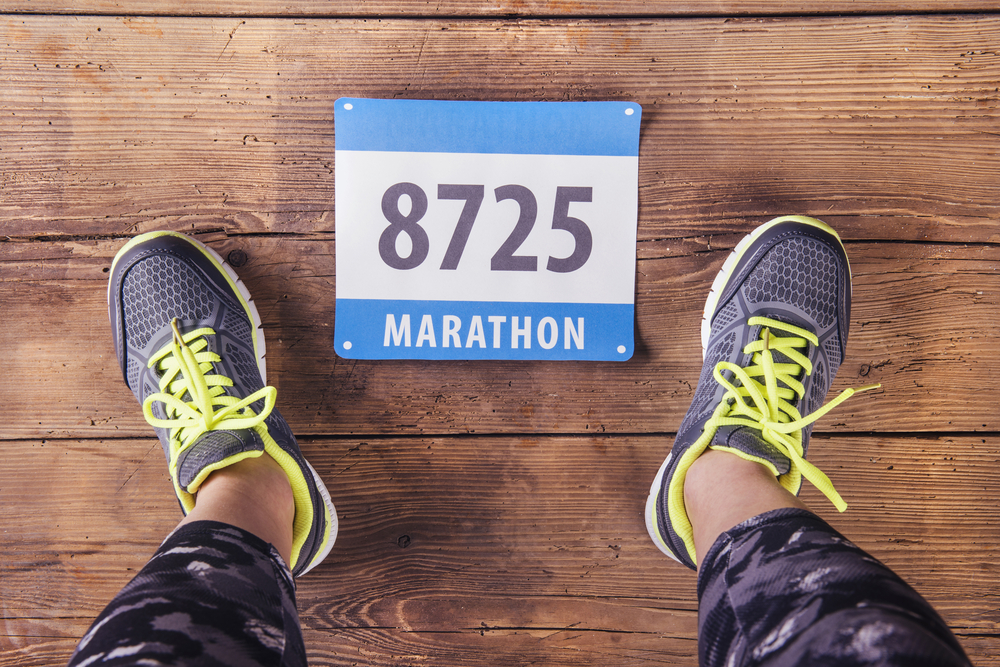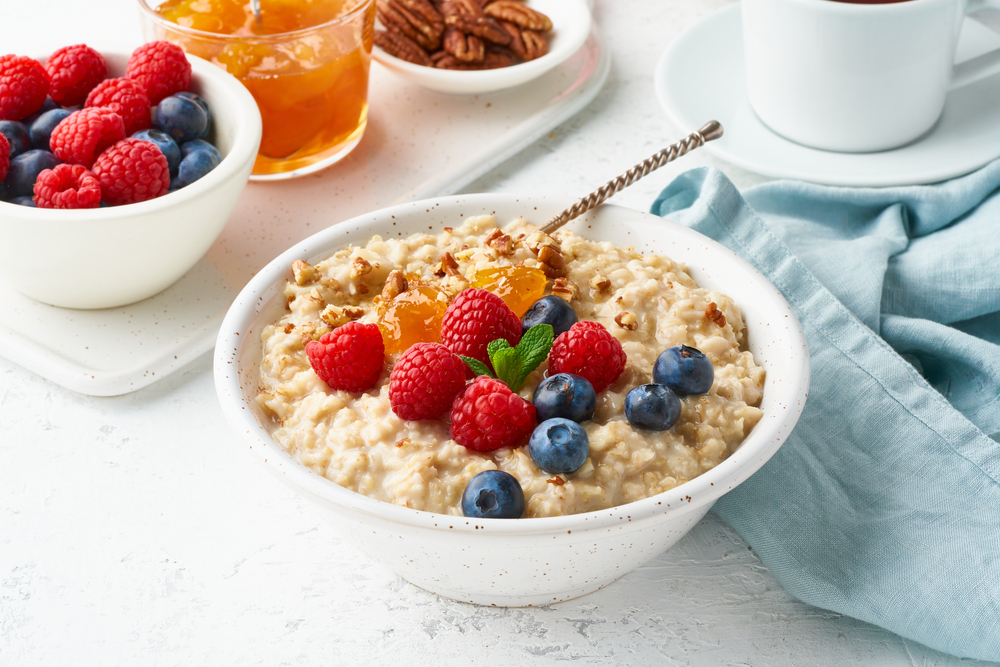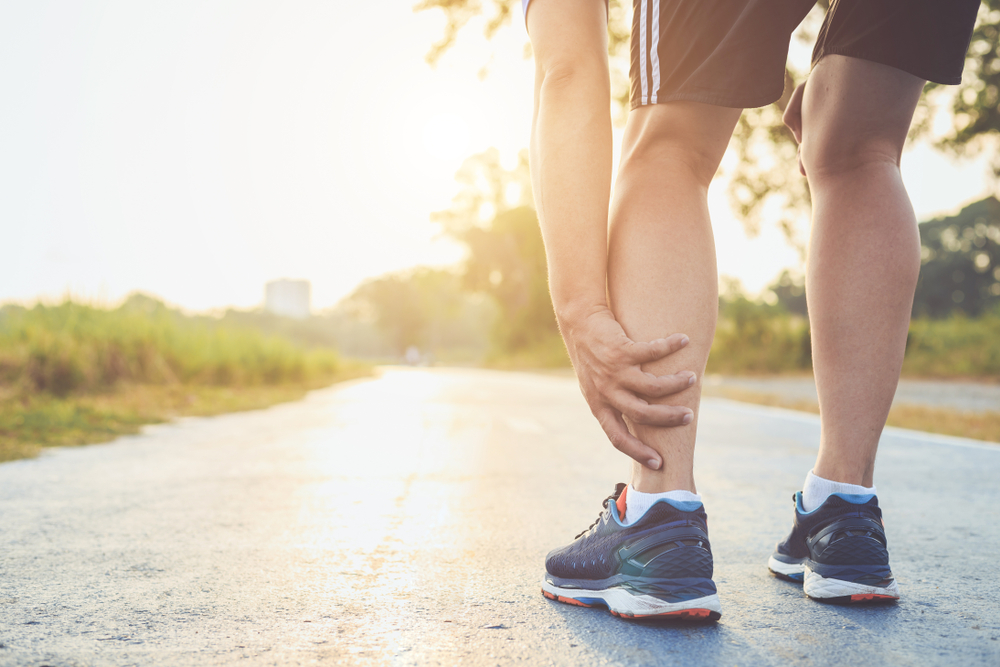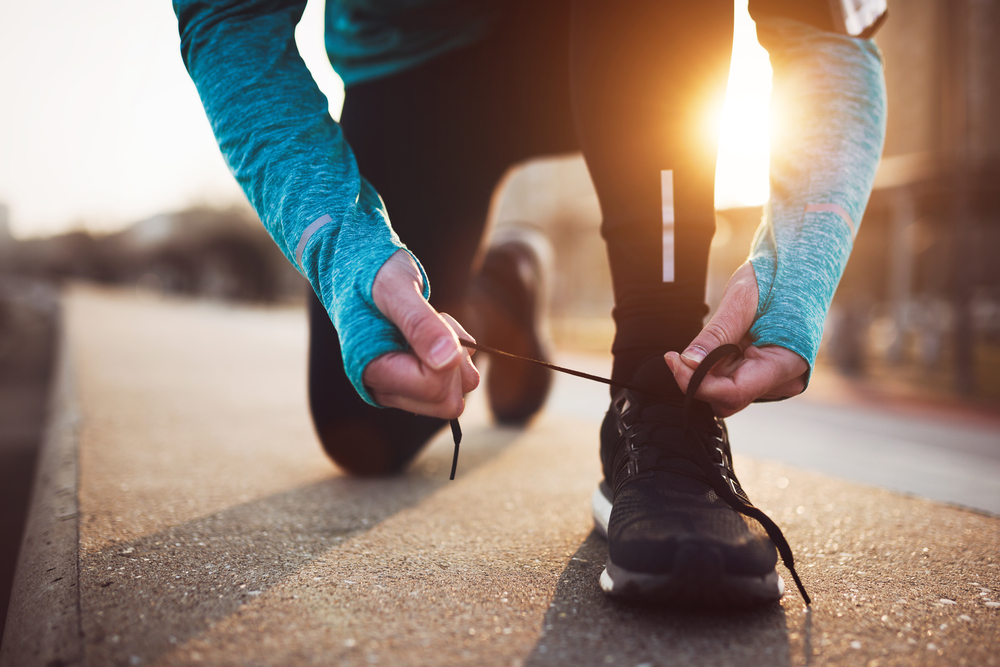Marathon preparation is not a simple task. Even the most athletic and experienced runners need to take their time to prepare their bodies, both mentally and physically, before a long run or big race. Although you want to ensure you push yourself to complete your goal, it’s crucial that you cross the finish line unscathed.
Can you run a marathon without training?
Of course, you can, but is it recommended? Most definitely not. Running a marathon without weeks of training can cause muscle stress, fractures, and long-term joint damage, but it can even send you to the hospital.
Not only could you hurt yourself physically, but you can also risk impairing your ability to run in the long term.

With this being said, for your marathon preparation, you’ll need to devise a comprehensive marathon training plan before you set foot on the race track. If you’ve done your research about marathons, you probably know what the primary elements of marathon training are.
However, it’s also important to go over all the things you should avoid before your big day. In this blog, we’ll cover all of our best marathon day tips and what you should avoid doing before the race.
1. Don’t over eat
As we know, nutrition is incredibly important. The right meals will provide you with the fuel you need to finish the race.
On the morning of your marathon, you should opt for a light breakfast that will provide you with plenty of energy. We recommend a simple bowl of porridge with a banana. However, in the weeks leading up to the race, it’s also important to focus on your diet. Don’t forget to eat plenty of carbohydrates and avoid fried foods.

Some foods are harsher on your digestive system than others. The last thing you want before running a marathon is a stomach ache or elevated heart rate. More specifically and as part of your marathon preparation, limit your caffeine intake, stay away from spicy foods, and avoid high fibre foods such as red meat, broccoli, and even apples.
You know your body best, so just make sure to choose ingredients that will sit well and opt for a light meal that keeps you energised throughout the day.
2. Don’t ignore your injuries
No matter how small or how large, you should never ignore an injury. This is extremely common amongst runners, and it could even cost you your athletic abilities in the long term.
The older you get, the more you need to be wary of making the best post-marathon recovery possible. This involves regular stretching and strengthening exercises, both pre and post marathons.
It doesn’t matter how long your run is either, whether it’s 20 miles or 20 minutes, you should always stretch before and after to avoid injuries.

You can also avoid injuries by slowly building your miles during training and investing in supportive products, such as our range of running insoles that include our Performance, Sports and UltraLite insoles.
These arch support insoles can slip into your trainers to help with shock absorption and reduce the likelihood of injuries like plantar fasciitis, achilles tendonitis, shin splints and knee pain. They work by stabilising the heel and supporting the arch.
3. Don’t under hydrate
Hydration is extremely vital for marathon runners, as water is responsible for regulating body temperature, improving post-marathon recovery, maximising performance, and minimising the likelihood of cramping or injuries.
Therefore, as part of your marathon preparation, you should consider cutting out alcohol before your race, as this can cause serious dehydration.
This being said, you should also avoid an excessive amount of water on the morning of your race. You could risk over-hydrating your body and triggering a state of hyponatremia, a condition that occurs when there is an abnormally low concentration of sodium in your blood levels.
4. Don’t wear new shoes
You may want to show off your brand-new running kicks on your big race day. However, it’s recommended that you run in a pair of shoes that have already been worn in.
Comfort is key whilst running a marathon and the last thing you want to deal with is a collection of blisters on your feet. If you are in desperate need of some new running shoes, just make sure to train with them in the weeks leading up to the race.
Already have a few sores? We recommend treating them with manuka honey plasters that help wounds heal faster and reduce chafing.
Marathon preparation: final thoughts
All in all, these are the most crucial things that you should avoid if you are training to run a marathon for beginners or longer distances. We all learn from our mistakes, but if you can bypass them in the first place during your marathon preparation, you’ll have a more pleasant experience.
In terms of things that you should do, you should always follow a marathon training plan in the months leading up to the race and, most importantly, you should have fun whilst doing so.
If you have any further questions or need some more advice, please don’t hesitate to contact us. Good luck!
This blog is also part of a wider series about marathons, which you can check out below:
- Marathon Injury Prevention: Everything You Need To Know
- 6 Marathon Training Activities To Help With Your Preparation
- Pre and Post-marathon Recovery: How To Look After Your Body
- The Dangers of Not Taking Care of Minor Injuries Properly
- 6 Top Tips for Preparing a Walking Marathon
- The Pitfalls of Running a Marathon without Training


